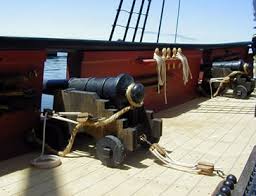

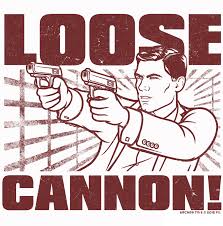
A loose cannon is defined as "a dangerously uncontrollable person or thing." It is a phrase that comes up often during election cycles, as candidates try to paint each other as rash and impulsive decision-makers.
loose cannon (plural loose cannons)
An uncontrolled or unpredictable person who causes damage to their own team, faction, political party, etc.
Jack is considered a loose cannon due to his volatile personality and his track record of being unable to maintain his composure.
Nautical: A cannon that breaks loose from its moorings on a ship during battle or storm, which has the potential to cause serious damage to the ship and her crew. (idiomatic, by extension)
 I have been considered a “loose cannon” by many who know me. In my career I probably made enemies. Most were scared to correct me, even my boss. You can decide for yourself by reading my true career story. A good wife would set me straight but I ain’t never married.
I really don’t want to hurt anyone but, God knows, I’ve probably driven many away from God. No one has ever called me humble, winsome, meek, or wise.
I have been considered a “loose cannon” by many who know me. In my career I probably made enemies. Most were scared to correct me, even my boss. You can decide for yourself by reading my true career story. A good wife would set me straight but I ain’t never married.
I really don’t want to hurt anyone but, God knows, I’ve probably driven many away from God. No one has ever called me humble, winsome, meek, or wise.
A friend of this reminded me this week of the stern words of our Lord:
Matthew 10:34-39 (NKJV) “Do not think that I came to bring peace on earth. I did not come to bring peace but a sword. For I have come to set a man against his father, a daughter against her mother, and a daughter-in-law against her mother-in-law’; and a man’s enemies will be those of his own household.’ He who loves father or mother more than Me is not worthy of Me. And he who loves son or daughter more than Me is not worthy of Me. And he who does not take his cross and follow after Me is not worthy of Me. He who finds his life will lose it, and he who loses his life for My sake will find it.
Luke 12:49-53 (NKJV) “I came to send fire on the earth, and how I wish it were already kindled! But I have a baptism to be baptized with, and how distressed I am till it is accomplished! 51 Do you suppose that I came to give peace on earth? I tell you, not at all, but rather division. For from now on five in one house will be divided: three against two, and two against three. Father will be divided against son and son against father, mother against daughter and daughter against mother, mother-in-law against her daughter-in-law and daughter-in-law against her mother-in-law.”
Jesus was not very PR conscious! The original meaning of “loose cannon” hearkens back to the sailing ships in the days of yore. Most had at least one cannon. Warships had many such guns (60+ for instance). Cannons were very heavy (cast iron) and mounted often on a wheeled cart. Often each cannon in service poked through its own porthole and sat on a metal rail so it could be hauled in and out, a heavy rope or constrained the backlash of the cannon when it was fired. Recoil, remember?
But in heavy weather any object on death not tied down could easily break loose and careen out of control, wreaking havoc. A frantic crew would risk their lives to cut the errant cannon loose and dump it safely overboard if it could not be captured and restrained. No wonder many ship’s captains were up all night and on deck.
So the original meaning of “loose cannon” was a literal ship’s gun.
Imagine the chaos when a cannon misfired, retracted, and finished its firing on the crew. (Guns were often in galleys below the deck).
A cannon that breaks loose from its moorings on a ship during battle or storm, which has the potential to cause serious damage to the ship and her crew.
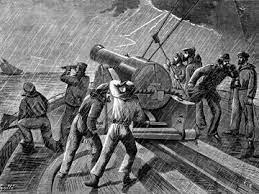
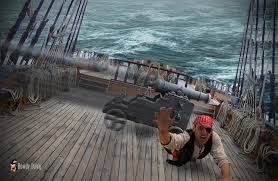
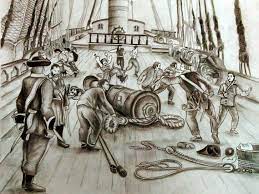
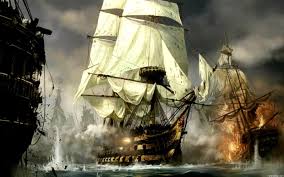
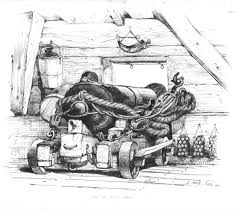
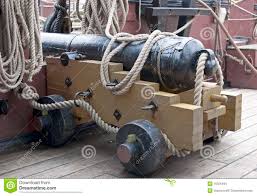
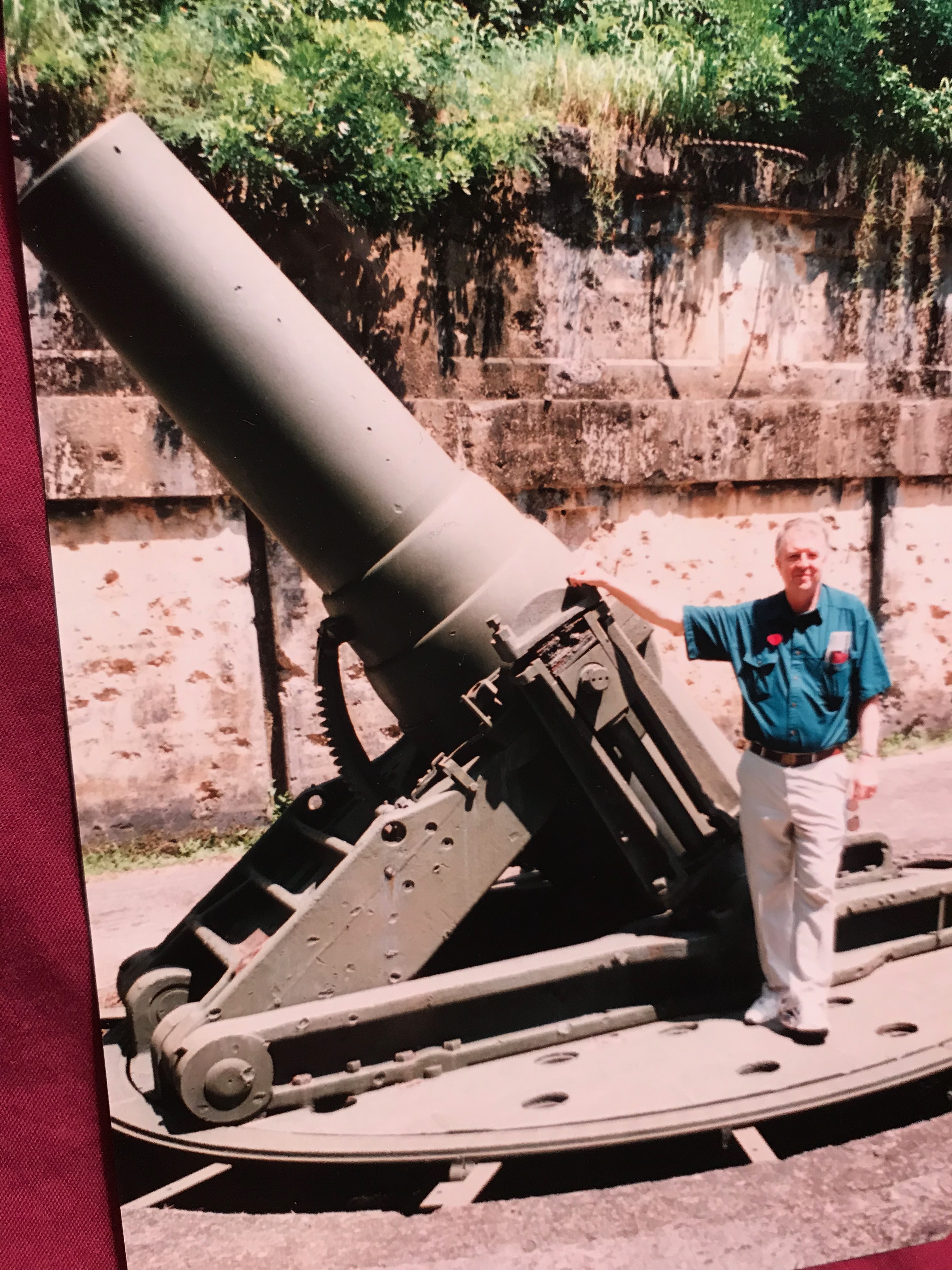 |
|